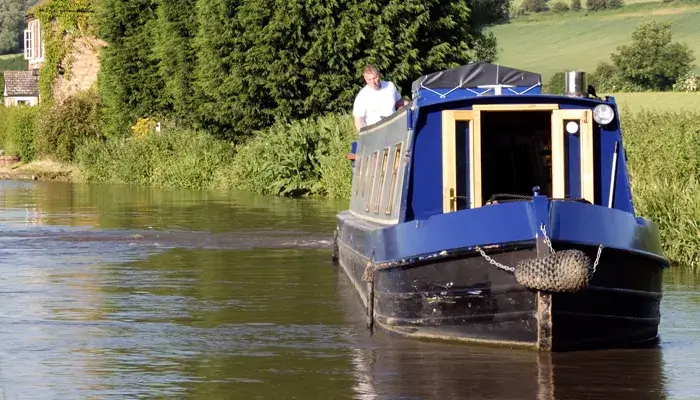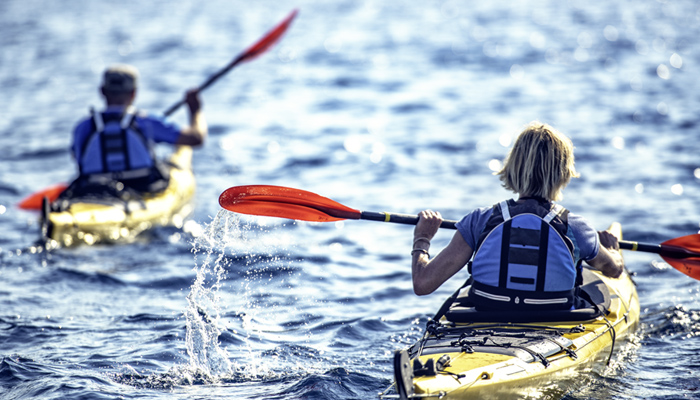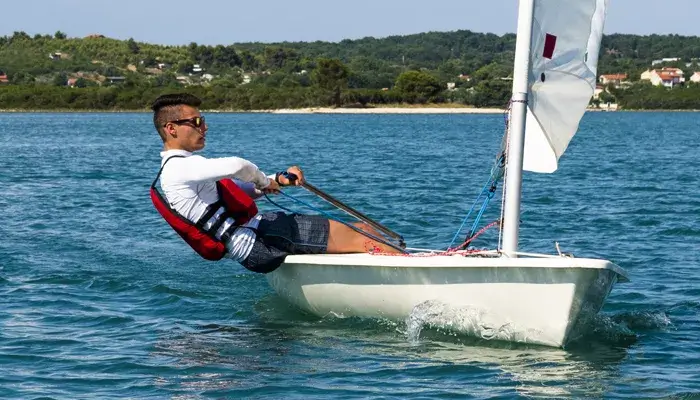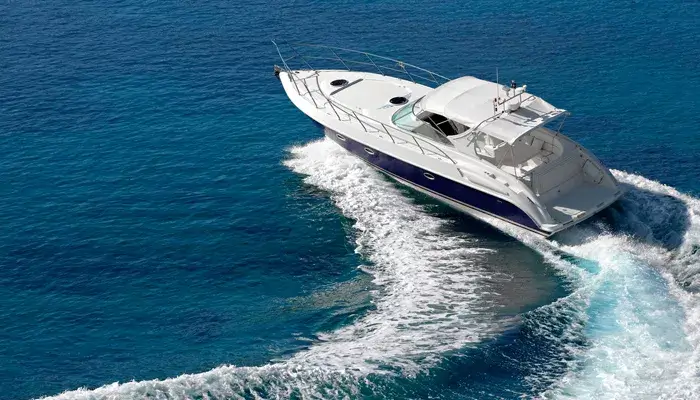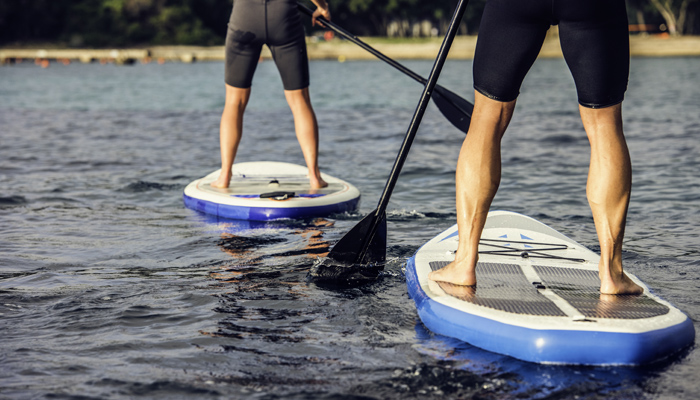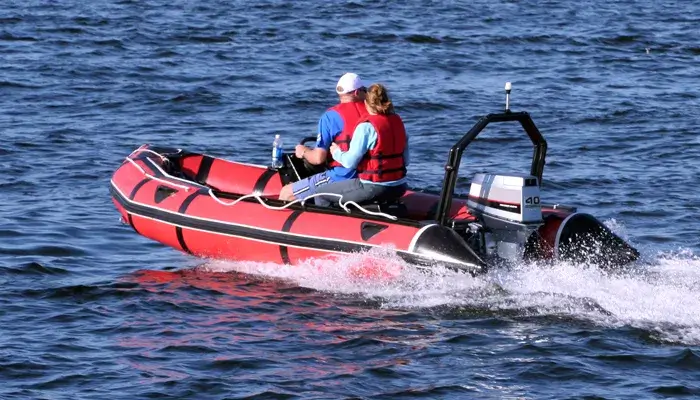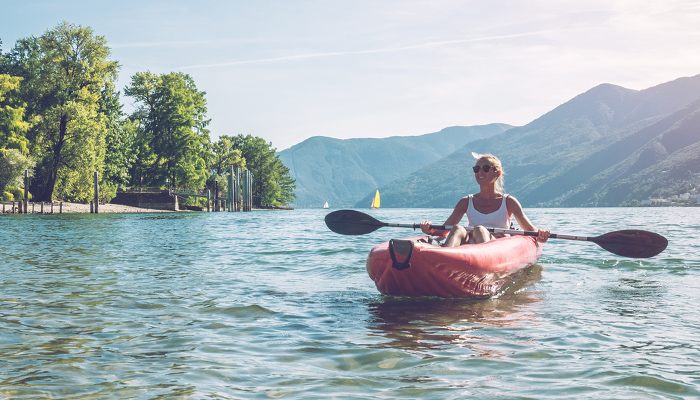How to care for your narrowboat in winter
Narrowboat winterisation and de-winterisation tips
With winters getting colder each year and sub-zero temperatures becoming more common across the UK, narrowboat insurance provider, we've put together some hints and tips on how to winterise your narrowboat and so avoid costly repair bills.
For those living on their narrowboats it's pretty much business as usual, although extra attention should be given to topping up antifreeze in keel cooling and other sealed water systems (such as radiators connected to the boiler).
Lagging hot and cold pipes is also a good idea. However, if your narrowboat is being laid up for the winter, the 'to do' list is somewhat longer.
Service the engine and protect gear casing and generators
If not in use, store generators in a gas-tight locker - the same regulations as Liquid Petroleum Gas (LPG) apply here.
To keep water out of the engine and gear casing, fill the diesel tank to prevent condensation and add the correct ratio of fuel conditioner (available from most chandleries).
Used regularly, fuel conditioner increases performance, reduces emissions and improves fuel economy. It also removes water from fuel lines and tanks, prevents and dissolves fungal growth, dissolves deposits from the fuel system, injectors and carburettors and de-carbonises combustion chambers.
Carry out some simple narrowboat engine maintenance
If you're nervous about leaving a full tank of diesel idle over the winter, as it may be a tempting target for thieves, ensure your engine has a water filter - this'll keep water out of the fuel line.
There are two types of diesel engine; air cooled and water cooled. Air cooled engines will not suffer ice problems, however water cooled ones will if not properly treated. Ensure the right amount of anti-freeze is in the water cooling system (if closed or keel cooling). If you have a raw water system, seal off the cock valve and if the engine is not to be used, drain the water out of the cooling jacket.
And don't forget to change the oil filters in the spring when the engine is serviced. Spray terminals with a silicone-free lubricant and grease all available grease points on the engine and drive, plus electrical connectors. Also lubricate linkages and gear/throttle slides.
Grease the stern tube once the engine is off - a vital link between propeller and engine. If not greased, water may dribble into the engine room, which over a long period of time can build up and cause your narrowboat to sink. As the boat gets lower in the water, any outlets such as those for a shower, sink or air vent, will get nearer to the water level and the result can be catastrophic. Grease the stern tube every time you turn off the engine as once the propeller turns, the seal is broken.
It's also a good idea to run the engine for an hour every month- this pushes oil around the engine and prevents rusting, plus it tops up the battery if left running long enough.
Draining water and heating systems
Burst water pipes can be a nightmare - yet easily avoided with some simple precautions;
Lag your hot and cold pipes and top up anti-freeze in keel cooling and other sealed heating systems (such as radiators connected to the boiler). This point is being repeated because it's the single most important thing to do, whether your narrowboat is being used over the winter period or not.
Drain down the water system (including drinking water and cistern) and leave taps in the open position. Most water heaters have a screw plug at their base and most can accommodate an old-fashioned cycle pump which makes the emptying of water that much quicker.
Taps should be left open because if any water is left in the system and it freezes, the pressure on the pipes will be less due to air coming out of the taps.
Easy narrowboat security checks
-
Remove valuable items such as electrical products, the television, even booze. If you have the luxury of a secure mooring this might not be such an issue, but if in doubt - take it out.
-
Invest in a decent lock - the chances are this will deter a thief and your insurance policy requires this. There are alarms on the market that generate a text to your mobile if activated, however, the general consensus appears they are costly and have limited effect.
-
Mushroom vents are becoming increasing popular amongst thieves so check your covers for water/gas heater exhausts or air ventilators have a bar across the bottom of their thread - this ensures they're difficult to screw out.
-
To avoid discolouration, you may want to put grease on your external brass, as some narrowboat owners do. Remember to put away any spare ropes.
Securing solar panels on your narrowboat
-
Deter solar panel pilferers by using a marine-grade UV bonding compound that sets in 24 hours and is rock solid. Use it for the panels themselves or to glue the feet of mounting kits that house glass panels - a less intrusive option than welding or drilling holes.
-
Flexible solar panels can also be screwed onto a flat surface or clipped onto a narrowboat. Rather than using conventional nuts with bolts, use security shear nuts, whereby the nut is tightened to a certain torque and then the top section twists off leaving a tamper-proof cone. If you have glass panels, they're more at risk of vandalism than plastic ones.
-
There's much debate over whether adhesive or shear nuts are the best option for securing solar panels. If you use marine-grade adhesive on the panel itself and not the mounting feet, it will be difficult to maintain the roof below and once stuck down, the panel is there for life, making it difficult to repair or replace. Shear nuts, however, can be removed with a fair bit of effort.
Be aware of diesel regulations
Although not crucial to winterising your narrowboat, it's important to keep abreast of changes in legislation. Fuel Quality Directive 2009/30/EC stipulates that non-road machinery gas oil must contain no more than 10mm sulphur and applies to inland waterway vessels and recreational craft when not at sea.
For more information read – Inland Waters Small Passenger Boat Code
Maintain the fuel tank
Suppliers are likely to provide road diesel with a red marker dye which contains up to 7% biodiesel. One of the UK's largest narrowboat and canal boat marinas, Trinity Marinas, says that because biodiesel is a solvent, it has concerns over the increased risk of bacterial contamination, including the oxidisation and precipitation of solids.
To combat this, Leicestershire-based Trinity recommends a six month fuel turnover and reminds vessel owners to check the compatibility of this diesel with the fuel seals on older engines, fuel hoses and copper fuel lines.
If you have an older vessel Trinity suggests replacing the fuel seals and fuel hoses as a precaution, examining the fuel systems after you've switched and replacing fuel filters after using two to three tanks of fuel.
Frequent checks of tanks will minimise water contamination, as will using a diesel bug treatment to break down the slimes and dead organisms (bacteria and fungi can enter the tank from the atmosphere via the vent or filling point).
How to bring your narrowboat out of winterisation
Owners who winterised their narrow boats properly will hopefully face few problems when taking to the water again when the season begins again. But before you get back on out on the water, consider the following advice;
-
Having drained down and switched off water systems, removed the water heater screw plug and left the taps in the open position, it's now time to turn off the taps, replace the plug and switch the water pump on.
-
Once the water pump is back on, go to each tap in turn and run water through it. Start with the taps closest to the pump and work your way through to the one furthest away - this'll push out any air locks. Drain any water in the tank out and refill before drinking.
-
And remember servicing, including the engine, LPG and electrical systems, plus fire extinguishers and escape hatches. Everything should pass Boat Safety Scheme scrutiny.
Although no action is needed for the gas pipes at the start of the winter, it's a good idea to paint connections with 50% soap liquid and 50% water using a small artist's brush - this will show up any minor gas leaks at the joints.
In many cases, problems arise as a result of something that has simply been overlooked and left to cause greater problems. For example, faulty gas fittings and issues with inverters/generators make narrow boats more vulnerable to serious fire. Surprisingly some boats even sink due to weed hatches being incorrectly fitted after cleaning, allowing water to seep back into the craft.
Narrowboat insurance from Towergate
Narrowboat insurance from Towergate is available for different vessels and levels of cover depending on what you use your boat for, from third party cover to weather events and personal accident. Get a narrowboat quote online or call us on 0344 892 1987.
About the author
Adam Summersby is a respected leader with 11 years’ varied experience in niche personal and commercial lines insurance, including caravan, site operators and excess reimbursement, with proficiency in leadership, sales and account management.
Date: January 10, 2025
Category: Boat





